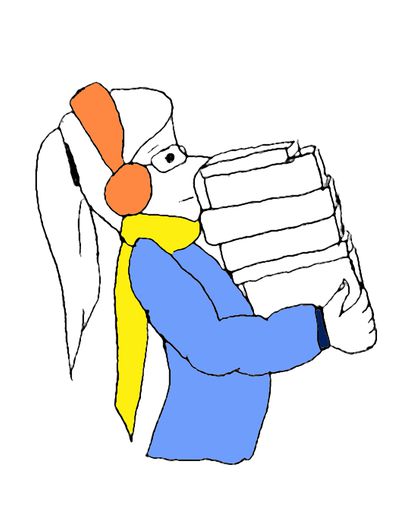The latest installment of our book advice column where you can ask our wise bookseller Agatha all your tricky (book-related) questions.
Agatha, I have a question about your namesake, Agatha Christie. Where do I start? Are her books an acquired taste or can you jump straight in? Who is the ideal ‘Agatha Christie’ reader?
Well, I daresay it’s lovely to get a question about my namesake. I have long adored the works of Agatha Christie. She was a dynamic woman for sure and an author that changed with the eras she wrote in. Her delicious crimes of passion and her characters’ melodramatic declarations have held me in fine stead over cold nights when I wanted a comforting read. As for where to start, it’s a tricky question, because I have never read a bad one – though if you’d like an especially surprising twist ending, I’d recommend Murder on the Orient Express. My father tells me that the reason I came by my name was because my pregnant mother’s astonished gasp upon finding out who the killer was in this book brought on her labour. (He is a notorious teller of tall tales, however.)
Other noteworthy books with twists in the tail are The Murder of Roger Ackroyd along with And Then There Were None (make sure you get a recent edition of that last one with the racist overtones removed). Christie wrote from the twenties to the early seventies, so if you are fond of a particular era, it could be worth starting there. With sixty-six detective novels, you will probably end up with a few shelves full of her just as I have.
One word of warning, do not read Curtain (Hercule Poirot’s last case) or Sleeping Murder (Miss Marple’s last case) until you have a few of her books under your belt.
I can think of no specific reader of our Aggie. She is by turns clever, funny, bloodthirsty, and racy, whip-smart enough for your insufferable know-it-all cousin (and I defy them to solve any of the cases before our egg-shaped Belgian and his grey matter), while being free enough of intestines and the like for your great-grandmother in her floral bedspread. Agatha is a wonder; she deserves all the accolades she continues to receive.
In addition (and note that I have not managed to get my hands on a copy just yet) thriller writer Sophie Hannah has undertaken the mammoth task of writing a new Hercule Poirot in The Monogram Murders, which is out on September 9. As a fan of the tricksy Hannah I will undoubtedly be buying this as soon as I can.
My mother is obsessed with dogs. Specifically her dog (a very slobbery bulldog), but also dogs in general. She’s also a book-lover and her birthday is coming up. Any gift ideas?
Ah, dog owners. I’m more of a cat person myself, but I have known many a dog-obsessive (they are much, much crazier than cat people, let me tell you.)
There are very many book options for your mother. You could consider a lovely, nostalgic classic novel about a dog, such as The Call of the Wild, The Incredible Journey or Lassie Come Home.
Another option might be a non-fiction book about dogs, such as the fascinating How Dogs Love Us: A Neuroscientist and His Dog Decode the Canine Brain or Animal Wise: The Thoughts and Emotions of Our Fellow Creatures.
Finally, might I suggest an particularly adorable new children’s book called Gaston, that features a bulldog growing up in a family of poodles.
Recently my family has been putting a lot of pressure on me to read more. What are some simple books I can read that will make me seem smarter than I am?
Really, there are a few different methods you can apply here. The first would be to aim for obscurity. Have a hunt through lists of ‘Author you haven’t heard of (but should’ve)’ and the like and then throw yourself into reading the backlist of one or two of authors. Really, the more obscure the better in this case! You might like to try Clarice Lispector or Alejandro Zambra who both produce slim books that are highly readable, highly acclaimed and generally considered under-appreciated by Australian readers.
If you’re open to moving away from fiction you could instead dedicate your time to storing new knowledge and read some non-fiction books. This will give you the opportunity to say form serious opinions about newsworthy topics and allow you to insert your reading material into conversations about things other than books.

Some recent releases that may appeal as smart and engaging reads are Anne Manne’s investigation into narcissism (The Life of I: The New Culture of Narcissism), Masha Gessen’s account of feminist post-punk collective Pussy Riot (Words Will Break Cement) or Andrew Leigh’s economics book (The Economics of Just About Everything).
A final option, which may just prove more worthwhile in the long-run, is that rather than read a number of simple books, just invest in a single author who will serve as a trump card for all scenarios. Think along the lines of Proust or Shakespeare. This way when someone asks you what you’ve read lately you can just say something along the lines of, ‘Oh well, I’m rereading Proust at the moment because well, you know… Oh, you haven’t read him. What a shame.’
If you have a question for Agatha please email


